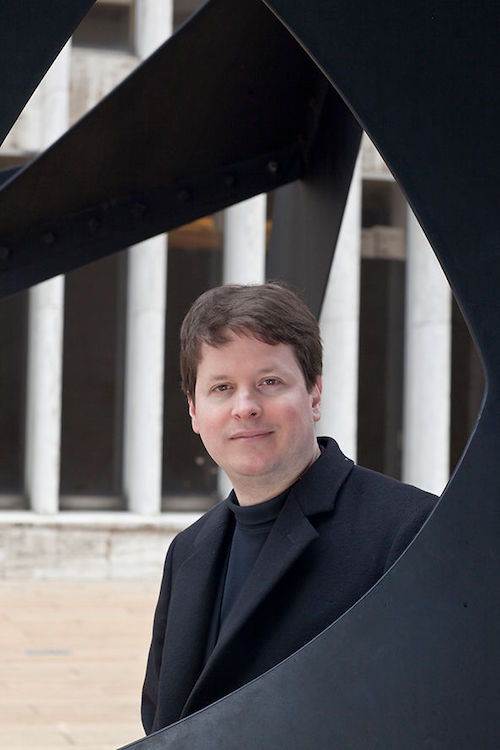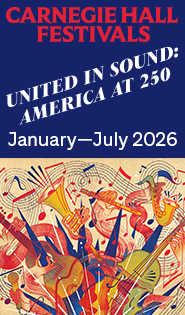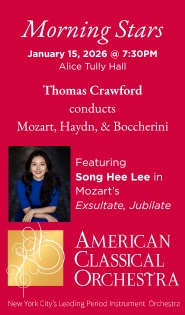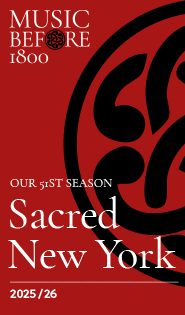Organist Jacobs celebrates Franck’s 200th birthday with subtle virtuosity

Two hundred years after his birth, the most prominence César Franck has had this year is likely a recent article in the New York Times about the waning popularity of his Symphony in D minor. Franck certainly deserves more attention, but the vagaries of taste and history have relegated him to two niches: the composer of that symphony and a popular violin sonata, and the maker of unheard organ works.
The organ was really his métier as a musician and composer, and the prominent contemporary organist Paul Jacobs is highlighting the quality of this musical legacy with a project called the “César Franck Bicentennial Organ Series.” The first of two concerts opened Tuesday night at the Church of St. Mary the Virgin with deeply musical and satisfying performances of Trois Pièces pour Grand Orgue, and Trois Chorals pour Grand Orgue, Franck’s final work.
These are superb pieces that one rarely hears in concert to begin with, and even less frequently with this kind of clarity—the sense that the musician understands them and enables them to speak with such eloquence. What is so compelling about Franck’s organ writing is not the spectacle of the instrument and the sonic gestures it creates, but how structure and form and expressive imperatives drives the sound and the musical results. There’s no indulgence in the colors of stops and registers for their own sake; all is driven by the logic of the musical line.
These were virtuosic performances that had nothing to do with the speed and agility of Jacobs’ hands. The subtlety of his skill is that it involves the complex and wholistic blend of the composition, instrument, and performance space. Working with these, making key aesthetic and expressive choices in registration, listening to the reverberant space, Jacobs played with marvelous articulation and at times even put a small, but noticeable, frame around musical ideas. Rather than a rush of sound and a mass of emotions, each piece had the space to develop organically, phrase by phrase, section by section.
Even with fervid, vocalized passages that would have worked as intense bel canto arias, the Trois Pièces were fascinating and pleasurable for how all the parts came together. The opening “Fantasie in A” was engrossing, with Jacobs laying out the episodic structure with judicious pace and space between ideas. This sounded like a fantasy, as in a daydream, not a musical fantasia, with a long, clear narrative line rather than flights of improvisation. The “Cantabile” was expressive, the left hand sounding very much like an orchestra and a singer delivering an excerpt from a bel canto opera.
Even the “Pièce Héroïque,” the inspiration for numerous horror movie soundtrack tropes, reached heights of expression that felt real. Jacobs’ playing was a steady climb to the summit, and the climactic moments were earned, not sentimental.
The lovely Chorals have much more of a fantasia character than what one might expect from the legacy of Bach. They are musical stories, laid out in sections, contrapuntal techniques secondary to the feeling of a journey. One again admired Jacobs’ measured approach. In no way was the organist underplaying or holding back any energy, instead he made every musical statement clear, the meaning and expressive force coming from Franck through the instrument. As a way to honor both the existence and achievement of this composer, both known and yet misunderstood, this was an impressive and enjoyable achievement.
Paul Jacobs plays César Franck’s Six Pièces pour Grand Orgue, 7:30 p.m. June 7. livemusicproject.org




Posted Mar 31, 2022 at 1:33 pm by Carina Tiotuico
Paul Jacobs performed Tuesday night as only he can. Everytime his hands touched the keys it brought me to tears. The beauty of the work interpreted with his artistry is always pure joy. This was an exhilarating return to his concerts for me after two long years of not getting to experience musical performances.
Dr. Jacobs deserves all the Grammys in the world. He is flawless and the best Professor of Organ. His music means the Melody of the Heart, and the Voice of the Spirit.